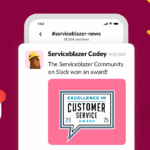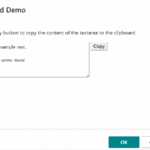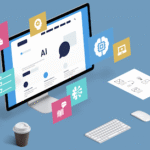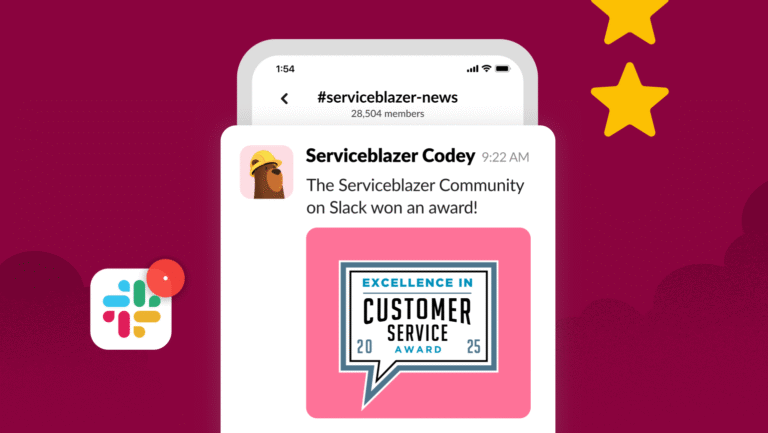The artificial intelligence (AI) revolution isn’t just about chatbots anymore. Generative AI has entered its next phase, powered by AI agents that don’t just assist but take action. For small and medium-sized businesses (SMBs), time is always in short supply. You start your day with a plan, but soon, you’re drowning in emails, follow-ups, and endless tasks.
That’s why businesses everywhere are handing off routine tasks to AI. Not because it’s trendy, but because it works. In this blog, you’ll learn about the AI agents that can actually make your life easier — no tech jargon, no empty promises, just real tools that help you get more done.
What you’ll learn:
What’s an AI agent, again?
An AI agent is like super-efficient digital labor for your business. Built right into your customer relationship management (CRM) system, an AI agent acts as your personal assistant for sales, marketing, commerce, service and more. It answers customer questions, handles repetitive tasks, and even learns from experience to get better at its job. Unlike a classic chatbot, an AI agent doesn’t follow predefined scripts. It thinks, adapts, and helps your business run more smoothly based on the training you provide it, without needing much supervision.
AI agents learn from data. The more they know about your business and customers, the smarter they become. That’s why they work best when connected to your AI CRM, where all your customer interactions and sales history are stored. And, just like departments, not all AI agents do the same job. Some handle customer conversations, while others analyze trends or automate workflows. Let’s explore the four best types of AI agents that can transform the way you work.
AI Tools for Small Business
1. Sales development representative (SDR) agents
Sales Development Representative (SDR) agents are a type of artificial intelligence (AI) designed to assist or automate aspects of the sales process. These agents perform tasks such as lead generation, customer engagement, and even closing deals. They use advanced algorithms and machine learning to analyze data. They can predict customer behavior and provide personalized recommendations.
According to the latest State of Sales Report, 83% of sales teams using AI saw revenue growth last year, compared to 66% of teams without AI. An SDR agent takes care of routine tasks like qualifying leads, answering questions, and creating quotes. It works around the clock to make sure there are no customers left waiting.
But an SDR agent does more than just automate tasks. It can spot the most promising leads and suggest the best way to pitch a product. And, it can even help teams refine their sales techniques. The right insights at the right time can mean the difference between a missed opportunity and a closed deal. Let’s look at some key areas where an AI sales agent can help you.
Find and qualify leads
Not every potential customer is ready to buy. An AI sales agent sorts through incoming leads and identifies those most likely to convert. It also answers common questions and sets up meetings with the right sales rep. In fact, 39% of consumers are already comfortable with AI agents scheduling their appointments.
Coach your sales teams
Sales teams get productive when they get useful feedback. An AI sales agent can be your 24/7 sales coach, listen to calls, analyze pitches, and suggest ways to improve. It also runs practice conversations to help your team handle tough questions with confidence.
Create accurate quotes
Generating a sales quote manually can be tedious and frustrating. An AI sales agent pulls product details, pricing, and customer information to create quotes instantly. It also helps update contracts, adjust pricing, and renew deals without delays.
Identify upsell opportunities
An AI sales agent analyzes customer history and interactions to suggest the right products and services at the right time. It helps identify upsell opportunities and makes personalized recommendations to increase sales.
2. Customer service agents
Customer service agents are AI assistants that help answer customer questions and solve their problems with needing only minimal human help. Our report suggests that 32% of consumers would actually prefer working with an AI agent over a human for faster service. In fact, they pick up on patterns in customer questions and adjust their responses to be more helpful.
The result? Customers get answers that actually make sense for their situation. Not just a generic reply. And because AI can handle so many requests at once, you can keep up with demand without making customers wait.
AI service agents use trusted data to give accurate answers. The best way for that? A connected CRM that keeps all your customer information in one place. That means fewer mistakes, fewer frustrated customers, and fewer follow-ups. Let’s explore the key ways an AI service agent can enhance your customer support process.
Solve problems across all channels
Customers ask for help in different ways — chat, email, social media, or by phone. AI-powered service agents make sure they get the right answers no matter where they reach out. If someone starts a chat via text and later follows up by email, agents remember the conversation so customers don’t have to repeat themselves.
Help your agents work faster
Customer service teams deal with a lot of information. In fact, our latest State of Service report states that 66% of service teams’ time is spent on non-customer-facing tasks (like administrative work and manual data entry). AI helps with that, by creating summaries of past interactions, suggesting responses, and organizing important details. This reduces time spent searching for answers, so teams can focus on resolving issues quickly.
Sort and route cases efficiently
Not all customer issues need the same level of attention. AI analyzes incoming requests, categorizes them, and assigns them to the right team. It speeds up response times and ensures complex issues reach the best-qualified team member without delay.
Customer service secrets from top startups
Discover the tips to stellar customer service from eight thriving startups. Elevate your small business with their expert tips and tricks!

3. Marketing campaign agents
Marketing campaign agents are a type of AI agent that automates key marketing tasks and helps you create targeted campaigns with minimal effort. They act as business strategists, content creators, and data analysts all in one. You no longer need to manually plan every campaign, write countless emails, or spend hours analyzing data. AI agents take on these tasks and make marketing more efficient. And consumers are on board too — our State of the AI Connected Customer report says that 38% prefer AI for creating more personalized and useful ads and content.
Marketing AI agents are trained to understand customer data and generate insights in real time. They help create audience segments, write personalized messages, and even predict the best time to reach prospects. They can also turn one-way promotions into two-way interactions. Customers can respond, book appointments, or redeem offers directly from an online ad or message. Here are some ways a marketing campaign agent helps you transform your marketing efforts.
What can your small business do with marketing automation on
Salesforce CRM?



Find the right customers easily
A marketing campaign agent helps you group your audience based on real data. Things like what they’ve bought before, how they interact with your emails, or even what they’ve browsed on your site. It sends messages that match people’s interests at the right time. This makes them more likely to engage and buy.
Know what customers want before they do
AI looks at past behavior to predict what customers might do next. Who’s likely to buy? Who might unsubscribe soon? Which customers need a special offer to stay interested? These insights help you make timely and better marketing moves.
Automate campaigns from start to finish
A marketing agent can help by drafting a promotional campaign brief. It can also suggest target audiences based on data and past engagement. Plus, it can craft email subject lines, generate ad copy, and create social media posts. You have to guide it along the way and track results. But AI saves you hours while making sure your content is personalized just for you.
Turn more leads into customers
Marketing agents help you organize your leads so the highest-priority ones are always at the top of your list. AI sorts and ranks your leads based on their activity (like opening emails or visiting your website) so you know who’s most interested. This helps you focus on the ones most likely to convert. It also suggests the best follow-up, whether it’s a friendly reminder or a special offer.
Drive growth with sales and marketing alignment
Bring sales and marketing together to turn leads into loyal customers faster.



4. Ecommerce agents
Ecommerce agents are AI assistants that help you sell your products or services on an online store. According to our research, 26% of consumers are already comfortable letting AI agents shop on their behalf. Unlike traditional AI that follows rigid scripts, they learn customer preferences. For example, if a customer frequently buys skincare products, the ecommerce agent can notify them when their favorite item is back in stock. Better yet, it can suggest complementary products before they even start searching. This means you’re not just selling more but also building stronger relationships with customers.
Beyond personalization, ecommerce agents help with backend operations. These agents analyze shopping trends in real time and help you launch targeted promotions. If a product isn’t selling well, the agents can recommend a discount or bundle it with a popular item. If a certain product is trending, they can prioritize restocking to meet demand. These insights help businesses stay competitive without relying on guesswork. Here are a few ways ecommerce agents can help.
Optimize the shopping experience
Running an online store involves countless small tasks (like updating product descriptions and launching promotions). An ecommerce agent takes care of these details by optimizing product listings. It also suggests discounts for slow-moving items and creates search engine optimization (SEO) friendly content to attract more buyers.
Give personalized recommendations
Customers expect personalized recommendations. An ecommerce agent acts like a virtual shopping assistant for them. It analyzes browsing history and past purchases to offer tailored product recommendations. It can even remind shoppers about abandoned carts and offer discounts to encourage purchases.
Simplify the reordering process
Business to business (B2B) buyers often reorder the same products or need help finding the best options based on pre-negotiated pricing. An ecommerce agent simplifies this process by handling bulk orders, tracking shipments, and answering common questions — all through chat or messaging apps.
Start selling online with Starter Suite.
Set up your storefront, engage customers, and drive growth using an all-in-one platform with integrated tools for every step of the journey.



5. Collaboration agents
A collaboration agent in Slack is an AI-powered assistant that helps your team work together more efficiently. Your team doesn’t have to waste time hunting for updates or sorting through endless messages. They can just ask the agent. It finds documents, summarizes conversations, assigns tasks, and even takes action — all within the same workflow.
But these agents do more than just keep things organized. They know what’s going on and suggest what to do next. They handle repetitive tasks automatically to make teamwork smooth. So, no more endless back-and-forths or lost information. Just clear, effortless collaboration. Here are a few ways collaboration agents can make teamwork easier and more efficient.
Get things done without leaving Slack
Collaboration agents bring AI-powered assistance directly into Slack. The agent can suggest actions and provide insights. It can even execute tasks. This allows your team to spend more time on meaningful work.
Find the right agent for the right job
Your team can find agents based on what they do — whether it’s sales, IT support, onboarding, or marketing. Admins can set them up and manage them, making sure everyone has the right tools when they need them.
Automate the tedious stuff
Collaboration agents can handle tasks like updating documents and sending messages. They can even help in posting updates and managing team spaces. You can use them to keep everyone in the loop to make sure nothing gets missed. Your team stays in charge by setting rules, so agents only step in when needed.
Get a full view of AI agents

Beyond these agents: What else is possible?
At the heart of all these AI agents is Agentforce — the AI solution that brings them together to help your business work more efficiently. Built right into the CRM, it allows you to build and deploy AI agents that can handle tasks automatically across any business function. Whether it’s answering customer questions or automating routine work, Agentforce connects AI, data, and automation to get things done. You can even customize it to fit your business needs, so the agents work exactly the way you want them to.
But the possibilities don’t stop here. AI agents can help in almost every area of your business. Here are more AI agents that can lighten your team’s workload:
- HR agent: It streamlines employee support by answering benefits questions. It also guides new hires through onboarding and offers personalized career support.
- IT agent: It resolves common tech issues like resetting passwords or fixing software problems. It can also manage IT tickets and send updates on ongoing issues.
- Legal agent: Regulatory processes can be slow and complex. Legal agents automate compliance approvals and document processing, reducing risks and delays.
- Product and engineering agent: This agent assists with product design, testing, and development. It helps teams track progress and spot potential issues early.
- Supply chain management agent: It optimizes warehouse operations, manages suppliers, and enhances demand forecasting for a more efficient supply chain.

These 5 types of AI agents will help grow your business
Well, that’s a wrap on AI agents — for now. As AI continues to evolve, new possibilities will emerge, making it even easier to automate tasks and improve customer experiences. We will keep you updated.
No matter how advanced AI gets, one thing remains the same: it’s only as powerful as the data behind it. Salesforce helps you get data-ready from day one. It brings your marketing, sales, service and commerce into one place. No matter if you’re streamlining customer support, boosting sales efficiency, or tailoring shopping experiences, it all starts with Starter Suite.
Start your journey with a free trial of Starter Suite today. Looking for more customization? Explore Pro Suite. Already a Salesforce customer? Activate Foundations to try out Agentforce today.
AI supported the writers and editors who created this article.











